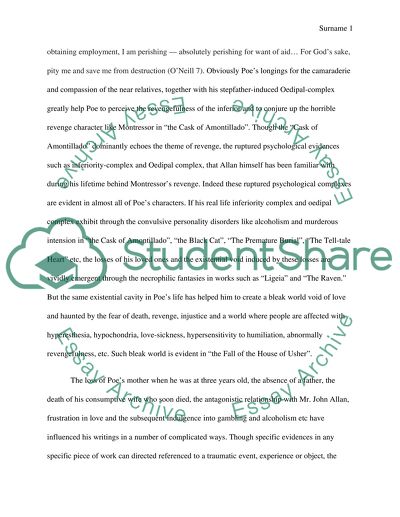Cite this document
(“Poes psychosomatic Turmoil Research Paper Example | Topics and Well Written Essays - 1500 words”, n.d.)
Retrieved from https://studentshare.org/english/1430233-poes-psychosomatic-turmoil
Retrieved from https://studentshare.org/english/1430233-poes-psychosomatic-turmoil
(Poes Psychosomatic Turmoil Research Paper Example | Topics and Well Written Essays - 1500 Words)
https://studentshare.org/english/1430233-poes-psychosomatic-turmoil.
https://studentshare.org/english/1430233-poes-psychosomatic-turmoil.
“Poes Psychosomatic Turmoil Research Paper Example | Topics and Well Written Essays - 1500 Words”, n.d. https://studentshare.org/english/1430233-poes-psychosomatic-turmoil.


